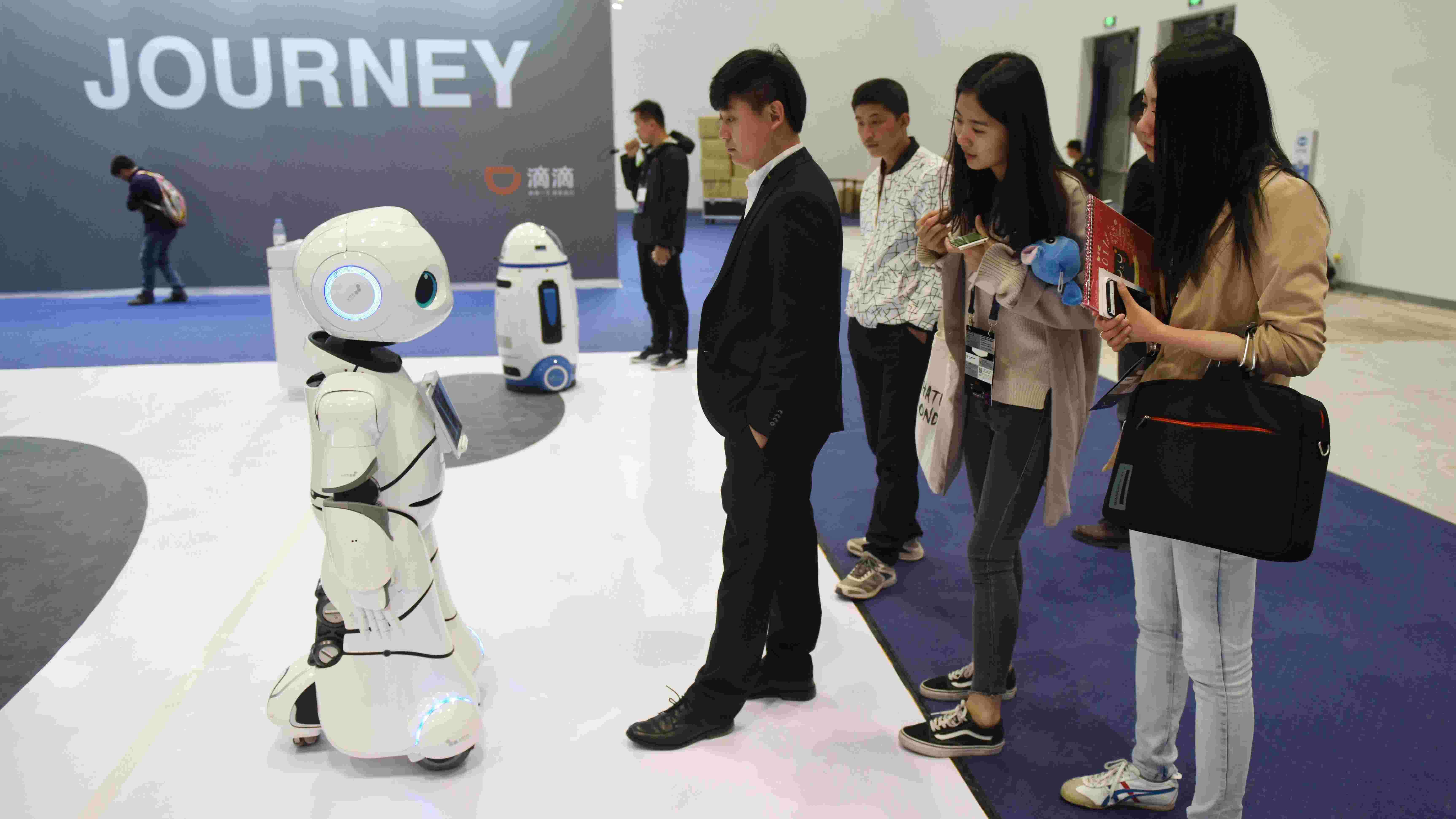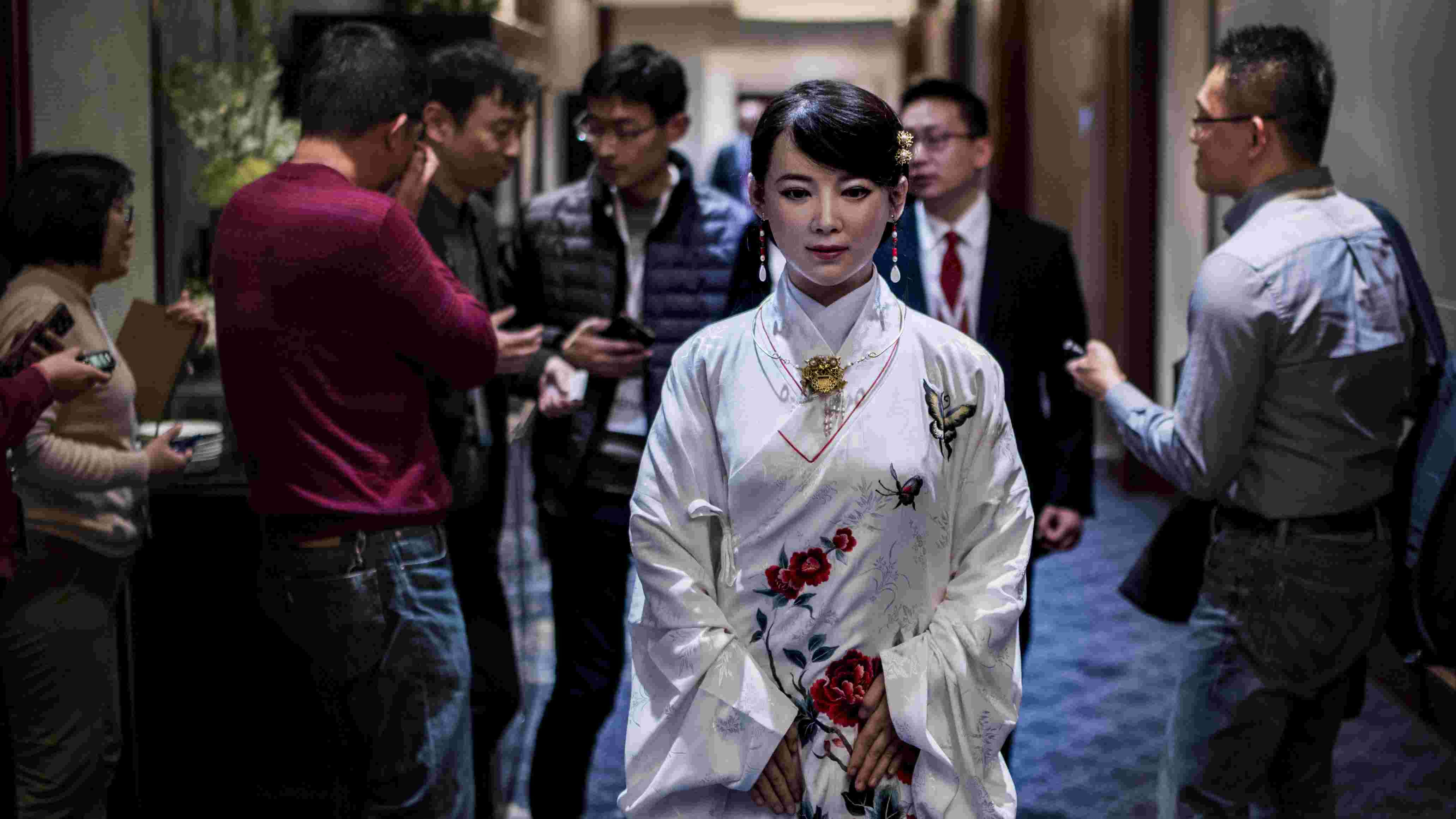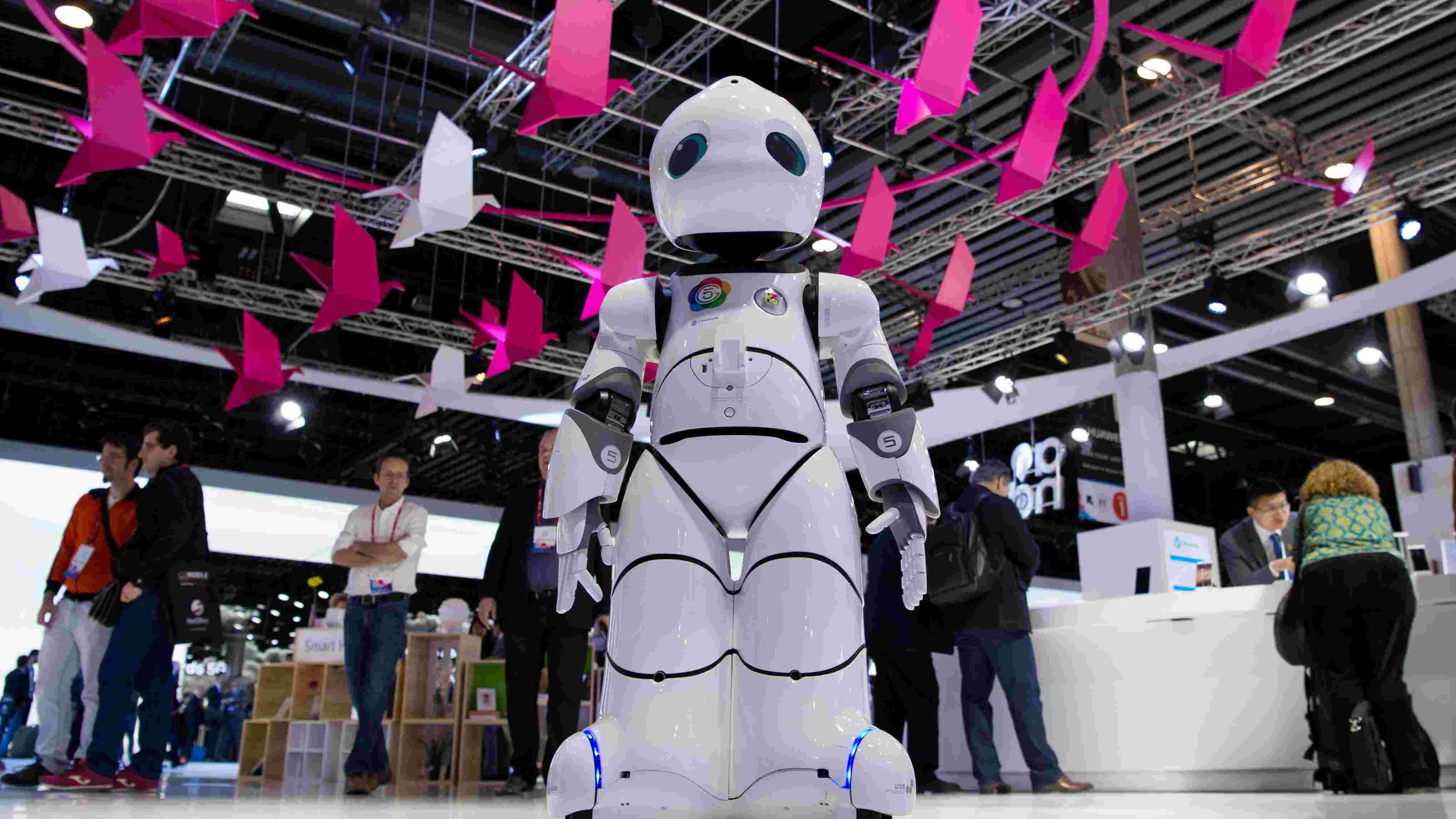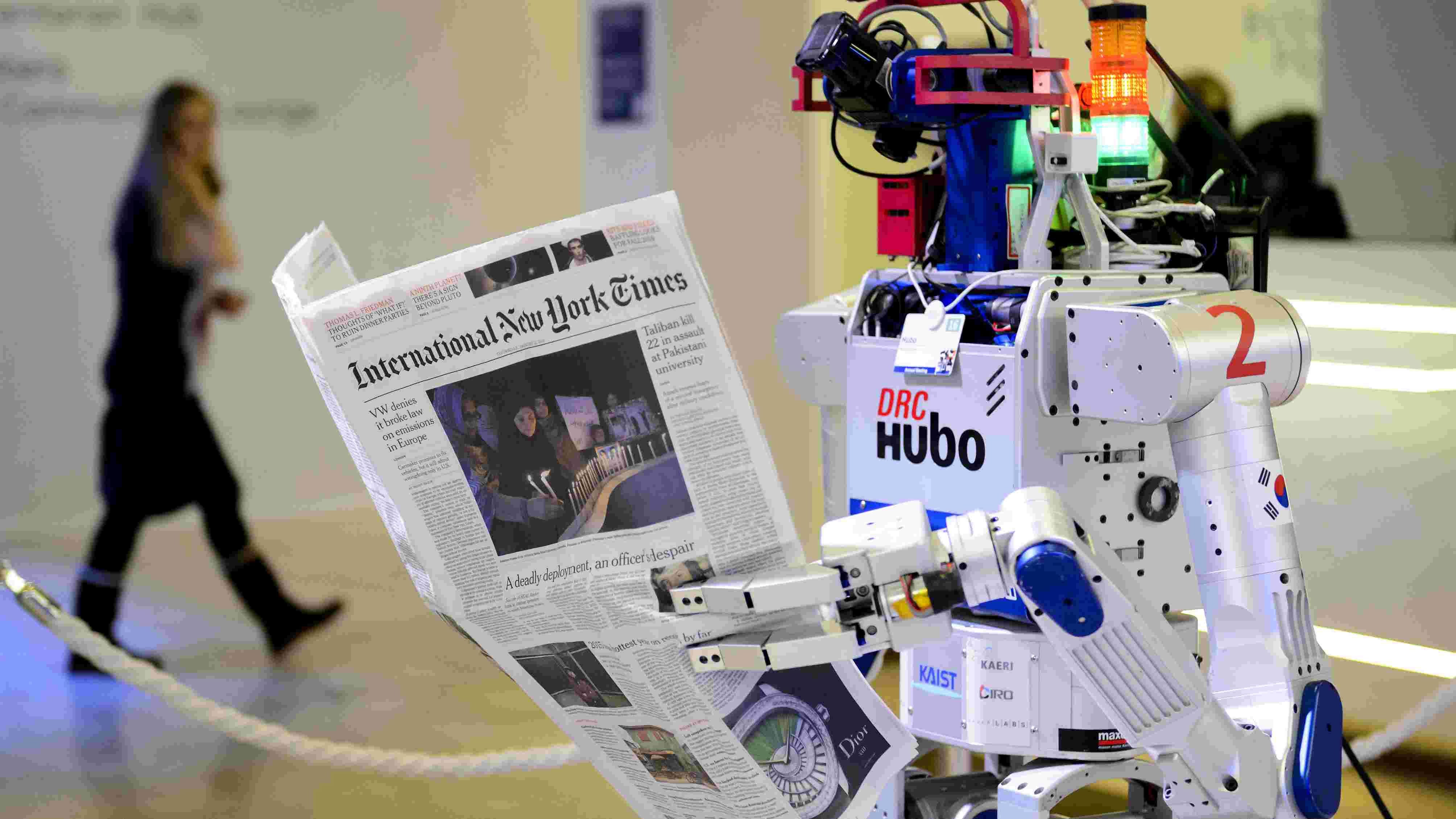
Tech & Sci
16:41, 16-Aug-2017
'AI, robots may prove to be a boon in countries facing labor shortage'
CGTN

Advances in artificial intelligence (AI) and automation are moving at a lightening speed. This has many around the world fearful of job replacement, but if one is to believe Nomura's chief economist for Asia ex-Japan Rob Subbaraman, AI and other new technologies could prove to be a boon in countries facing a shortage of young workers.
"If you don't embrace this new artificial intelligence, robotics, and ways to make up for shortages of youth labor, you're going to have a slowdown of potential growth," Subbaraman, managing director at Nomura, told CNBC's "Capital Connection" on Monday. Countries in such a situation include China, Japan and South Korea.
A country's growth potential is driven by labor, capital, and productivity. A slowdown in a country's labor force growth means it has to rely a lot more on productivity in order to maintain its growth. That's where machines can help since they can process information faster and carry out tasks more quickly than humans.
Subbaraman pointed to Japan as a place where an AI revolution could kick off. "Because Japan's got a falling and aging population, it really needs machines, AI and all this to start replacing labor," he said.

AFP Photos
AFP Photos
Japanese Prime Minister Shinzo Abe said in March that his government does not fear AI and that the technology could actually help the country to grow. It's already in place: Earlier this year, Japan opened two hotels that are staffed mostly by robots.
AI is developing capabilities even researchers do not understand.
AI job replacement

AFP Photos
AFP Photos
Japan’s Softbank CEO Masayoshi Son expects that sometime within the next 30 years there will be AI systems with IQs of 10,000, compared to the human "Einsteinian" genius level of 200.
Many low-skill jobs have already being automated, including data entry keyers, telemarketers, and hand sewers. The counter-argument is that AI will create new industries and jobs.
Subbaraman said the key thing for governments is going to be re-training workers so that they'll have the necessary skills for new jobs that'll come into being.
"Governments need to be forward-looking and start acting now in terms of retraining workers, encouraging labor mobility, spending more of their fiscal budget on this," he said. "That's where I think they need to start moving a lot faster than they have."

AFP Photos
AFP Photos
China's plans
China has laid out plans to become the world leader in AI by 2030, with the aim of making the industry worth 1 trillion yuan (147.7 billion US dollars). The State Council released its three-step roadmap last month outlining the thinking behind how it expects AI to be developed and deployed in areas from the military to city planning.
Chinese artificial intelligence startup SenseTime completed a 410-million-US-dollar financing round in July, in what the company calls the largest private financing rounds ever closed by an AI startup globally. That feat may soon be topped, probably by another startup in China.
The nation is betting heavily on AI. Money is pouring in from China’s investors, big Internet companies and government, driven by a belief that the technology can remake entire sectors of the economy, as well as national security. A similar effort is underway in the US, but in this new global arms race, China has three advantages: A vast pool of engineers to write the software, a massive base of 751 million Internet users to test it on, and most importantly staunch government support.
Data is key because that’s how AI engineers train and test algorithms to adapt and learn new skills without human programmers intervening. SenseTime built its video analysis software using footage from the police force in Guangzhou, a southern city of 14 million residents. Most Chinese cities have set up institutes for AI that include some data-sharing arrangements, according to SenseTime CEO Li Xu.
"In China, the population is huge, so it’s much easier to collect data for whatever use-scenarios you need," he said. "When we talk about data resources, really the largest data source is the government."

AFP Photos
AFP Photos
AI adoption outside the tech sector is still at an experimental stage, according to consulting firm McKinsey. In a recent report, McKinsey said only 20 percent of 3,000 decision-makers surveyed revealed that they use any AI-related technology on a large scale or within a core part of their businesses.

SITEMAP
Copyright © 2018 CGTN. Beijing ICP prepared NO.16065310-3
Copyright © 2018 CGTN. Beijing ICP prepared NO.16065310-3